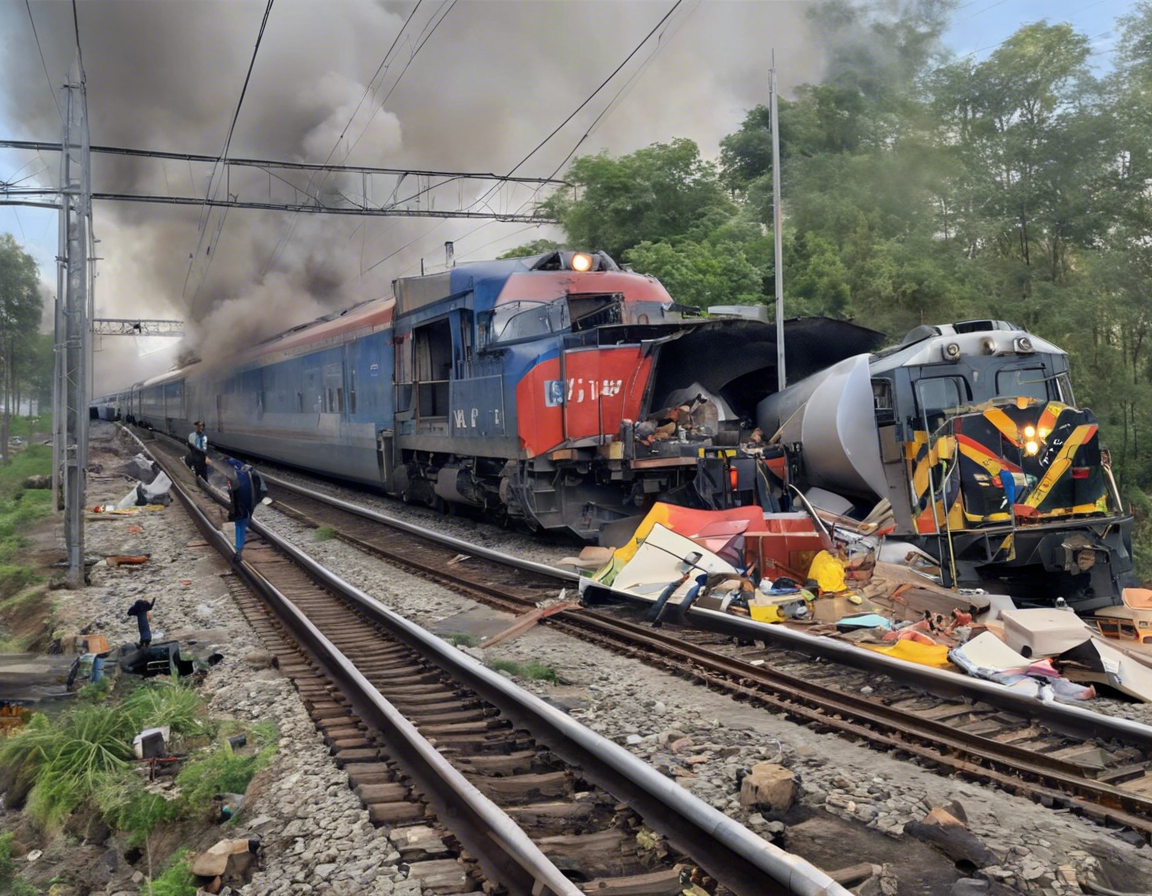The recent train accident that occurred has left many families and communities devastated. As authorities continue to investigate the cause of the accident, it is important to understand the impact of such incidents on both individuals and society as a whole. This blog post aims to provide a comprehensive overview of train accidents, their causes, consequences, and ways to prevent such disasters in the future.
Understanding Train Accidents
Train accidents are catastrophic events that can result in a significant loss of life, injuries, and damage to property. These accidents can be caused by a variety of factors, including human error, mechanical failure, weather conditions, and track defects. The consequences of train accidents can be far-reaching and may impact not only the individuals directly involved but also the surrounding communities and the economy at large.
Causes of Train Accidents
-
Human Error: One of the leading causes of train accidents is human error, which can include mistakes made by train operators, signal maintainers, or other railway personnel.
-
Mechanical Failure: Another common cause of train accidents is mechanical failure, such as brake or engine malfunctions, which can result in the loss of control of the train.
-
Weather Conditions: Adverse weather conditions, such as heavy rain, snow, or fog, can reduce visibility and traction, increasing the risk of accidents.
-
Track Defects: Poorly maintained tracks, damaged rails, or faulty switches can contribute to derailments and collisions.
Consequences of Train Accidents
The consequences of train accidents can be devastating and long-lasting. Some of the most common consequences include:
-
Loss of Life: Train accidents can result in fatalities, leaving families and communities grieving the loss of their loved ones.
-
Injuries: Survivors of train accidents may suffer from serious injuries, including broken bones, burns, and traumatic brain injuries.
-
Property Damage: Train accidents can also cause significant damage to property, including trains, tracks, and surrounding infrastructure.
-
Economic Impact: Train accidents can have a substantial economic impact, leading to costly cleanup efforts, lawsuits, and disruptions to transportation services.
Preventing Train Accidents
To prevent train accidents and improve railway safety, various measures can be implemented:
-
Investing in Infrastructure: Regular maintenance and upgrades of railway tracks, signals, and trains can help prevent accidents caused by infrastructure failures.
-
Training and Education: Providing comprehensive training programs for railway personnel can help reduce human errors and improve safety practices.
-
Implementing Safety Regulations: Stricter enforcement of safety regulations and guidelines can help ensure compliance with industry standards and best practices.
-
Utilizing Technology: The use of advanced technologies, such as automatic braking systems and predictive maintenance tools, can help prevent accidents and improve overall safety.
Frequently Asked Questions (FAQs)
- What should I do if I witness a train accident?
If you witness a train accident, the first step is to ensure your safety and the safety of others around you. Contact emergency services immediately and provide as much information as you can about the location and nature of the accident.
- How common are train accidents?
Train accidents are relatively rare compared to other modes of transportation, but they can have serious consequences due to the size and speed of trains.
- What are some warning signs of potential train accidents?
Warning signs of potential train accidents include unusual noises coming from the train, erratic movements, and signals indicating an issue with the tracks or brakes.
- Are train accidents more common in certain regions or countries?
Train accidents can occur in any region or country, but they may be more prevalent in areas with older infrastructure or less stringent safety regulations.
- What role do railway companies play in preventing train accidents?
Railway companies are responsible for maintaining safe operating conditions, providing adequate training for employees, and complying with industry regulations to prevent accidents.
In conclusion, train accidents are tragic events with far-reaching consequences. By understanding the causes of train accidents, their impact, and ways to prevent them, we can work towards improving railway safety and minimizing the risk of future disasters. It is essential for authorities, railway companies, and the public to collaborate in ensuring the safety and well-being of all individuals who rely on trains for transportation.
